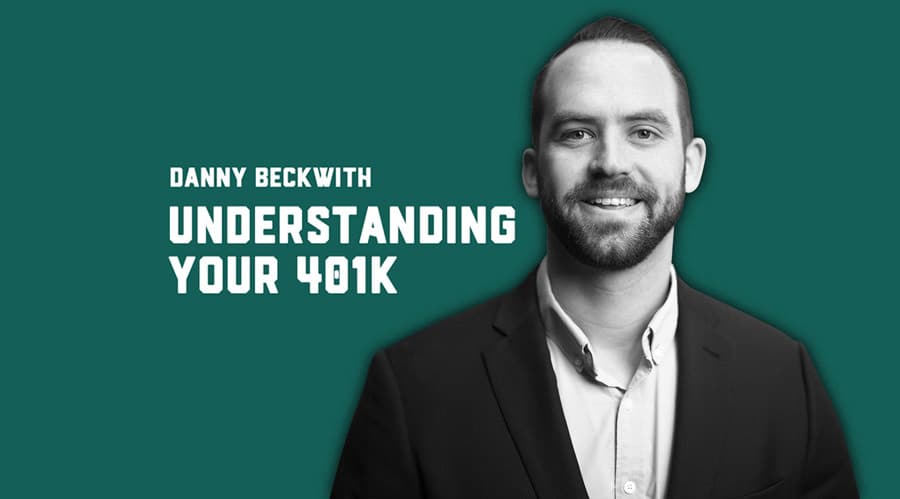This BenchTalk is all about understanding your 401(k) plan. At its core, a 401(k) is a type of retirement savings plan that companies will offer to their employees to help save for retirement. The general consensus and what most of us have been told is that you should contribute to a 401(k). This is true for many of us, but a lot of people follow this advice blindly and don’t ask the right questions when it comes to their 401(k) plan. The goal of this BenchTalk is to provide you with a few tools that can help you maximize your 401(k) and ensure that you are saving as efficiently as possible for retirement.
Employer 401(k) Contributions
In a typical 401(k) plan, your employer will contribute to your account on your behalf. These employer contributions mainly appear in two forms:
Outright Contributions
With this method, a company will contribute to an employee’s 401(k) as a straight percentage of the employee’s paycheck. For example, the company might contribute 3% of your income into your account, regardless of any contributions you might make. If your employer does this, it will help you tremendously.
Employer Matching
This is the more common method of employer contributions that we see. With employer matching, an employer will match your 401(k) contributions dollar for dollar up to a given amount. For example, if you contributed 3% of your paycheck to your 401(k) your employer would match this and also contribute 3%. It is basically free money going into your account. If your employer offers a 401(k) plan with employer matching, you need to make sure that you are maxing out the matching contributions every month.
Employee 401(k) Contributions
Employee contributions are the contributions that you specifically make into your 401(k). These contributions are typically contributed as pretax dollars. This means that the money you contribute to your 401(k) today is not taxed. However when you withdrawal that contribution in retirement, you will be fully taxed at whatever your tax rate is in retirement.
The Roth 401(k)
On the flip slide, many companies are turning towards a tax-deferred retirement vessel called a Roth 401(k). A Roth 401(k) allows you to contribute to your retirement on a tax-deferred basis. This means that you are taxed on any contributions you make into your 401(k) at your current tax rate. When you want to withdraw money out of your Roth 401(k) in retirement, any withdrawals you make are 100% tax-free. All the earnings your 401(k) made throughout the years are also tax-free. The Roth 401(k) allows you to maximize the earnings in your account while also providing you with better tax flexibility. If you are familiar with a Roth IRA account, the Roth 401(k) is almost identical.
Understanding Your 401(k) Fees & Investment Options
401(k)s are known for having a lot of fees. A huge part of understanding your 401(k) is being aware of these fees and how they might affect you. There are two main categories of fees in a 401(k).
Management Fees
In short, these are the administrative fees that you pay for being a part of the 401(k) plan. If you are lucky, some companies will absorb these fees for you but oftentimes, these fees are passed along to you, the participant. You should check your 401(k) policy to see how much, if anything, you are paying in management fees.
Investment Fees
Investment fees are arguably the most important fees in a 401(k) because you can control them. In a 401(k), your employer will typically have picked a number of mutual funds that you can invest in. Each mutual fund has its own investment fees associated with investing in the fund. These fees can be really low or really high depending on the mutual fund that you choose to invest in. Our advice is to look at each mutual fund you are currently invested in or plan to invest in to minimize your investment fees. If you are paying more than 0.05%, you might want to reconsider investing in that fund. Of course, there is more decision making that needs to go into this, but generally, this is a good place to start.
Understanding Your 401(k) and Your Retirement
So whether it’s understanding the different types of contributions or how the fees and investment options work, you should have a better understanding of how your 401(k) works. In order to maximize your 401(k) and save as efficiently as possible for retirement, it all begins with analyzing your 401(k) plan. Some people are better at this than others, and we understand that. If you think you might need help, your HR department should be able to answer some of the questions you might have. If they can’t answer all of the questions you have, or even if you want to review the entirety of your retirement plan while you’re at it, feel free to reach out. We are always here to help.

